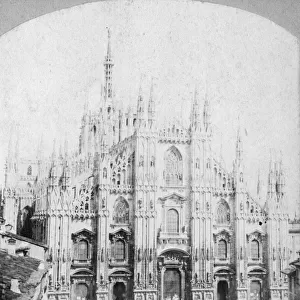Ned Ludd disguised as a woman. Ned Ludd, possibly born Edward Ludlam, allegedly the person from whom the Luddites took their name. The Luddites were a group of English textile workers and weavers in the 19th century who destroyed weaving machinery as a form of protest. From The Martyrs of Tolpuddle, published 1934
![]()

Wall Art and Photo Gifts from Design Pics
Ned Ludd disguised as a woman. Ned Ludd, possibly born Edward Ludlam, allegedly the person from whom the Luddites took their name. The Luddites were a group of English textile workers and weavers in the 19th century who destroyed weaving machinery as a form of protest. From The Martyrs of Tolpuddle, published 1934
Ned Ludd disguised as a woman. Ned Ludd, possibly born Edward Ludlam, allegedly the person from whom the Luddites took their name.The Luddites were a group of English textile workers and weavers in the 19th century who destroyed weaving machinery as a form of protest. From The Martyrs of Tolpuddle, published 1934
Design Pics offers Distinctively Different Imagery representing over 1,500 contributors
Media ID 24899039
© Hilary Jane Morgan / Design Pics
Destroyed Disguised Edward Group Machinery Protest Textile Weaving Woman Workers Ludd Luddites Nineteenth Weavers
EDITORS COMMENTS
This print captures a significant moment in history, showcasing Ned Ludd disguised as a woman. Believed to be Edward Ludlam, the alleged inspiration behind the Luddites' name, this image sheds light on the extraordinary lengths individuals went to protest against the mechanization of their craft. The Luddites were a group of English textile workers and weavers during the 19th century who resorted to destroying weaving machinery as an act of resistance. This powerful illustration from "The Martyrs of Tolpuddle" published in 1934, serves as a poignant reminder of their struggle. In this archival picture, Ned Ludd's disguise is both intriguing and symbolic. It speaks volumes about the desperation felt by these workers who faced unemployment due to industrial advancements. By adopting such disguises, they not only evaded detection but also challenged societal norms that restricted women's roles at that time. The image transports us back to nineteenth-century England when protests echoed through factories and mills across the country. It reminds us of the immense power held by ordinary people when united for a common cause. As we gaze upon this historical gem, we are reminded of how far society has come since then – where technology now plays an integral role in our lives. Yet it also prompts reflection on issues surrounding labor rights and automation today. This remarkable photograph is an invaluable piece from Design Pics' archive that allows us to delve into history while contemplating its relevance in our modern world.
MADE IN THE USA
Safe Shipping with 30 Day Money Back Guarantee
FREE PERSONALISATION*
We are proud to offer a range of customisation features including Personalised Captions, Color Filters and Picture Zoom Tools
SECURE PAYMENTS
We happily accept a wide range of payment options so you can pay for the things you need in the way that is most convenient for you
* Options may vary by product and licensing agreement. Zoomed Pictures can be adjusted in the Cart.


